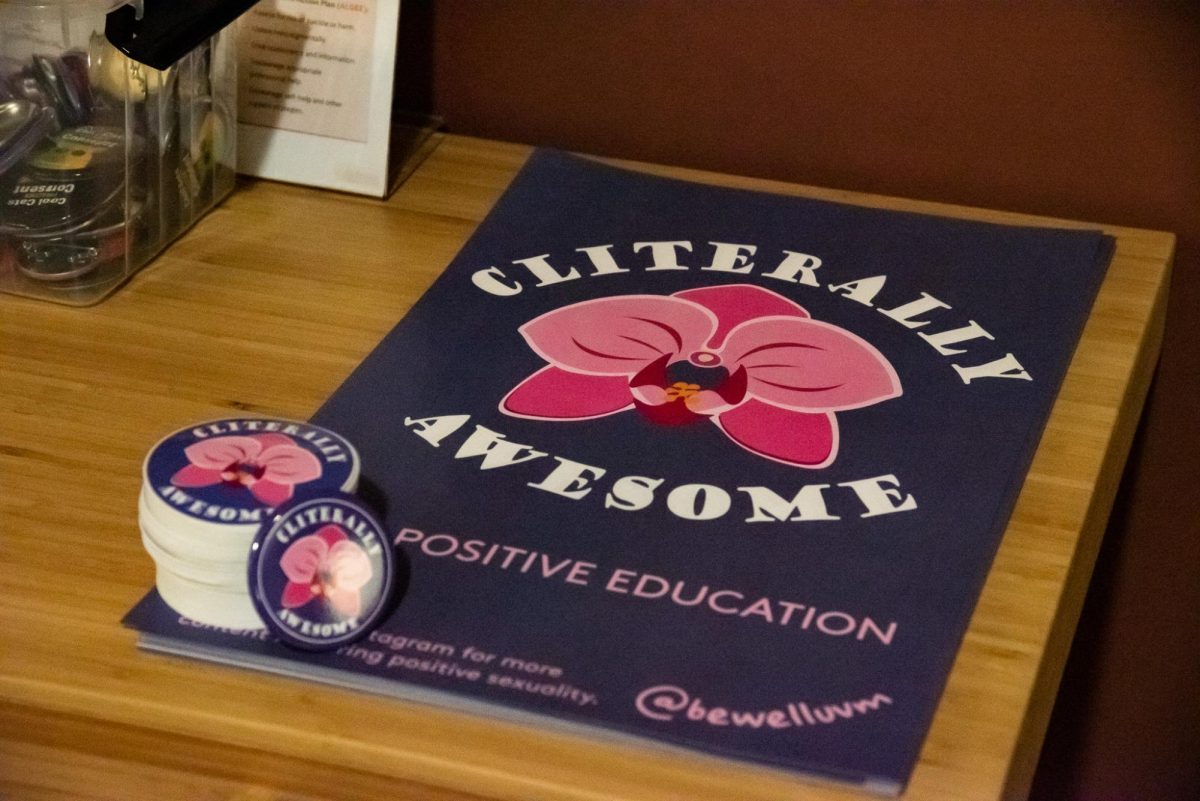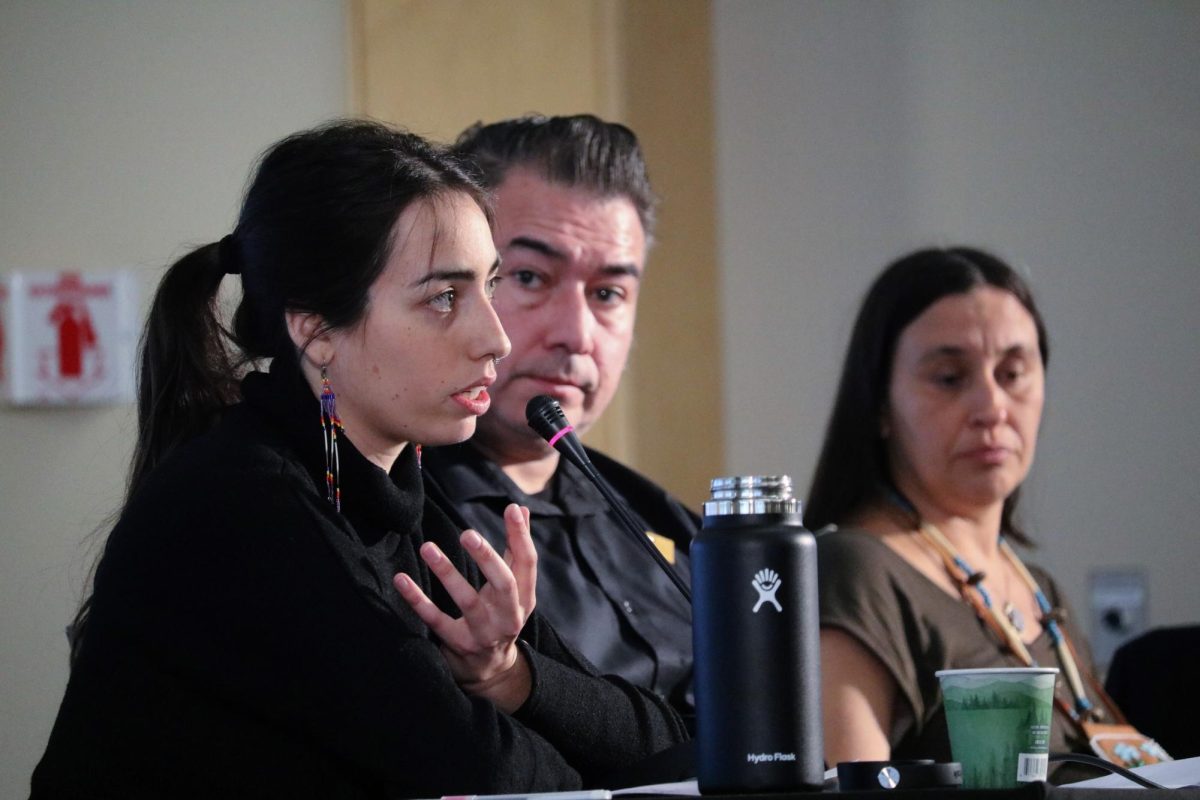The act of masturbation is often done in secret and is seldom talked about, said Jenna Emerson, a sexuality educator at the Center for Health and Wellbeing.
Masturbation is typically one’s first exploration of sexual feelings and desires, said Emerson.
However, despite the commonality of masturbation, it remains a sexual health topic that is not openly discussed, she said.
“I think that there is a lot of stigma when it comes to masturbation,” Emerson said. “There are still quite a few people who feel shame or are not open to talking about it.”

Beth Hankes, sex educator and owner of the adult entertainment store Earth and Salt in Burlington, also acknowledges the stigma around masturbation.
“I think it’s a really hard topic for people to talk about, even amongst friends and oftentimes even with the people that they’re having sex with,” she said.
Masturbation has historically been discouraged for religious reasons, Hankes said.
“There’s a pretty direct line back to about the 1700s,” Hankes said. “It seems like masturbation was often not thought of positively, especially in religious ideologies; the idea of self-pollution was certainly around.”
The stigma around masturbation was then institutionalized in the 18th century due to the beginnings of medical and mental health research, Hankes said.
“Medical professionals and researchers were noticing that folks who were in asylums often had compulsive masturbation behavior and unfortunately, they read that as causal instead of a symptom,” Hankes said. “They saw people masturbating a lot, and they thought, ‘oh, that must make people unwell.’”
This misidentified relationship between mental health and masturbation was then cemented into Western cultural ideas with the belief that anything immoral was bad for health, Hankes said.
This led to its stigmatization today, Hankes said.
“That became medical rhetoric for a century or two,” she said. “There’s been research to disprove it, and it is certainly no longer believed, but because we don’t have standardized medical and sex education [it’s] still part of the mythology around sex in our culture.”
Emerson added that a lack of education about self-pleasure compounds the stigma around masturbation.
“You can go through puberty, education, health classes, and you are learning about contraception and STIs and consent,” she said. “We teach a lot of concepts, but not a lot of teaching about self-exploration and how you healthily masturbate.”
Sophomore Eliana Allegri acknowledged that she did not learn about masturbation during sexual education.
“I’ve only ever been taught that masturbation is a bad thing and that […] you shouldn’t do it,” Allegri said.
Masturbation can be compounded by the effects of gender, Emerson said.
“I think it also comes with sexism,” Emerson said. “When we talk about masturbation it’s easier to talk about masturbation of people with penises than it is with people who have clitorises.”
Additionally, Hankes added that the stigma around masturbation manifests in different ways for men and women.
“For people with penises, it’s sort of encouraged and expected,” she said. “But I think too, then you get a lot into fear of sex addiction, fear of pornography addiction, and I think there’s a stigma there as well that can be really harmful for people with penises.”
This gendered experience of masturbation begins during puberty, when people experience sexual feelings and impulses for the first time, Emerson said.
“When we think about adolescence or your first experiences of masturbation, I think that is still really gendered because people don’t learn how to masturbate, and it’s hard to look that up or see that in pornography,” Emerson said.
Allegri added that she felt there was a gendered stigma around masturbation.

“It’s definitely more normal for guys to talk about masturbation,” she said. “Every time that I’ve encountered masturbation, it’s been treated as very taboo for women.”
This lack of discussion around female masturbation in particular can lead to negative feelings around sexual pleasure and a cultural view that women are undeserving of pleasure, Emerson said.
This particularly contributes to the general stigmatization of female sexuality and how women are culturally not allowed to have agency over their sexuality, Hankes said.
“I think it sort of hints at this ongoing stigmatization of people who have vaginas,” she said. “They should be receptive around sex, their desire should be in relationship to other partners, typically people with penises, and that they will help you define your sexuality and your sexual practices, but you can’t do that by yourself.”
Ultimately, destigmatizing masturbation starts with taking the first step toward open dialogue, Emerson said.
Masturbation can be an especially important tool in developing a healthy relationship with sex and sexuality, Emerson said.
“Positive sexuality is exploring what feels good to you and communicating that,” she said. “In adolescence, you’re not expected to know everything that feels good to you, this is a very exploratory age, so what masturbation can do is help with that exploration.”








